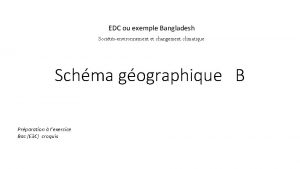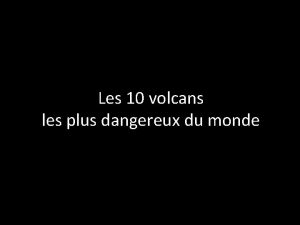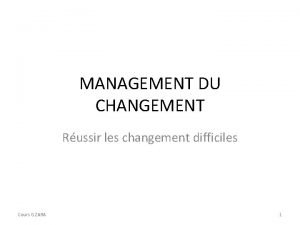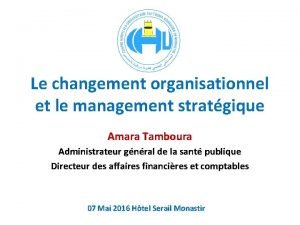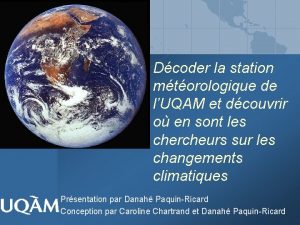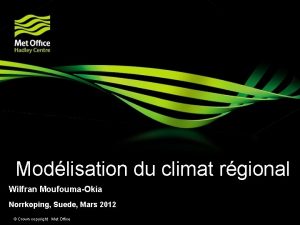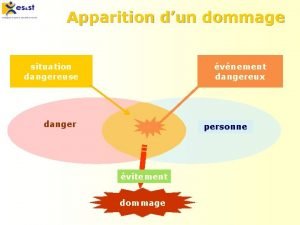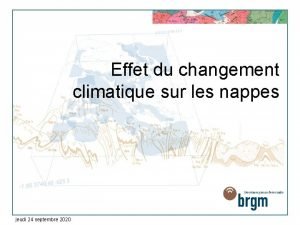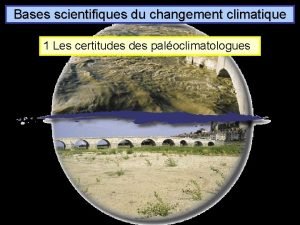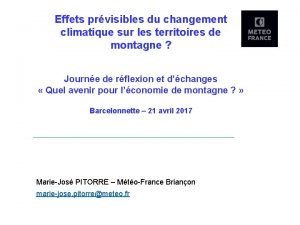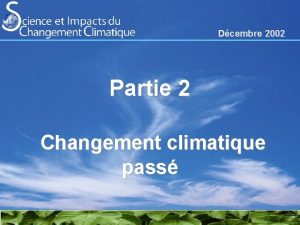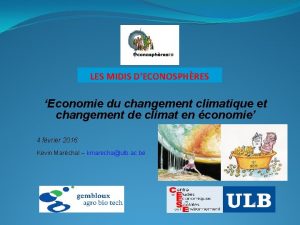Eviter un changement climatique dangereux Les tempratures mondiales







- Slides: 7


Eviter un changement climatique dangereux: • Les températures mondiales ont augmenté en phase avec les concentrations de CO 2 dans l’atmosphère • Pour limiter la hausse des températures à 2 C, seuil de danger à ne pas dépasser, les concentrations de CO 2 devront être stabilisées à 450 ppm. • Le PNUD estime le « budget carbone » pour le 21 siècle à 1, 456 Gt CO 2

Etablir un budget carbone pour le 21 siècle Objectifs Sur la base des émissions en 1990 – Le monde entier : diminution de 50% d’ici 2050 avec un pic en 2020 – Pays développés: diminution de 80% d’ici 2050 • Pays en développement: diminution de 20% d’ici 2050 3

Three main challenges for 2030 • Not enough non renewable sources of energy available to meet the trend demands, with no technology alternative in short term basis (20 years) • CO 2 emission is keeping increasing with t° increasing with dramatic natural disaster increasing consequently • Population increasing: 7 billions with level of life increasing • WE HAVE 100 MONTHS TO START TO CHANGE OUR PARADIGM OF GOVERNING OUR PLANET

National Governments United nations Regions Private sector Finance Expertise Technologies Trust Funds Know how training Transfer TOWARDS CARBON NEUTRAL AND CLIMATE CHANGE RESILIENT TERRITORIES

TOWARDS CARBON NEUTRAL AND CLIMATE CHANGE RESILIENT TERRITORIES Step 1: Awareness and training sessions Step 2: Designing and preparing CC strategies UNFCCC, Kyoto protocol, UNDP Human development report Carbon footprint: mitigation Adaptation and mitigation issues Best practices and knowledge management Transfer of technologies Available financing Identification of most interested and ready regions to enforce methodologies Step 3: Climate Change projects: public regulations and construction Identification Mapping vulnerability : From adaptation strategies and Mitigation and adaptation strategies and action plan Identifying regulations and financing action plan to projects Designing Certification Financing Private Public Partnership Management

The Partners for Saint Malo • United Nations: UNDP, UNEP in collaboration with UNOSAT, ISDR • Associations of regions: NRG 4 SD, NF, AIRF, AER • Inventories, guidelines: UNDP, UNEP, ISDR and nrg 4 sd • Methdologies: carbon footprint ADEME, Vulnerability mapping UNOSAT • Private sector: veolia environment • Pilot phase regions
